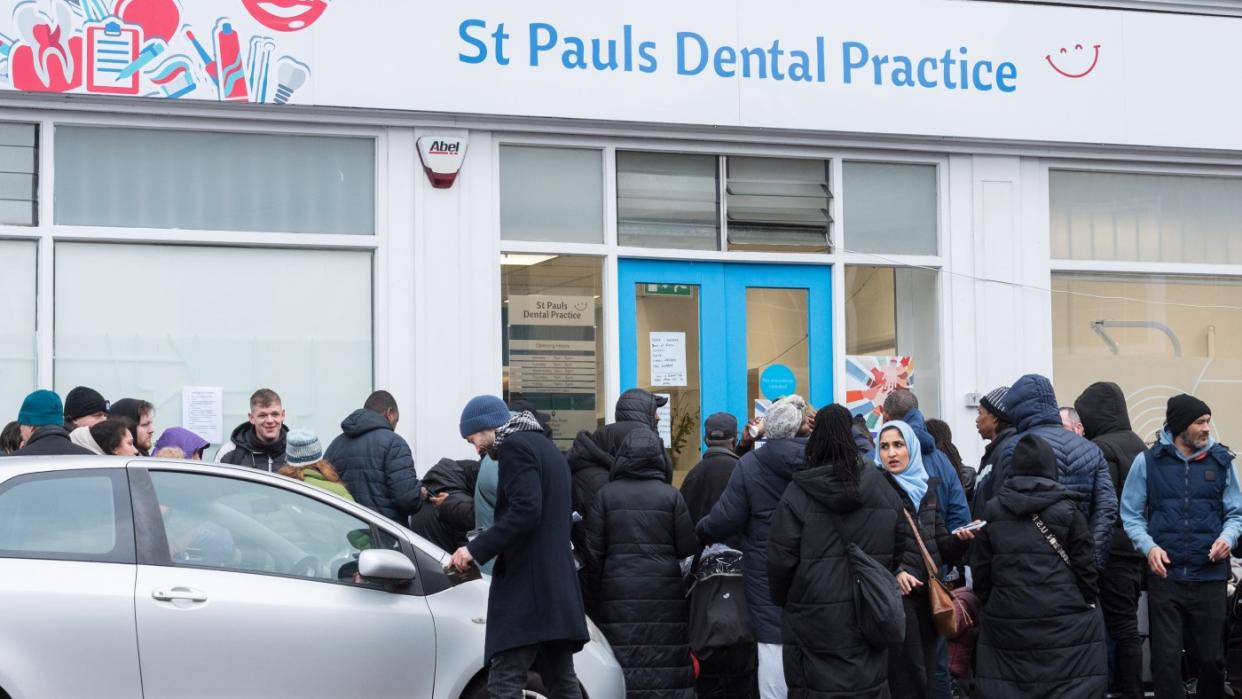Can Britain's dental crisis be fixed?

New government plans to tackle Britain's dental care crisis have been dismissed by the British Dental Association (BDA) as "rearranging the deck chairs".
A £20,000 bonus will be offered to up to 240 dentists to encourage them to work in the "so-called dental deserts where there is the poorest access to NHS care", said the BBC. The government has also announced measures including higher payments for dentists who take on new patients, and teeth-cleaning in schools.
But the "recovery plan" has been criticised by both the BDA and Labour. The opposition party said the "temporary measures" did not go far enough, while the BDA said that none of the proposals would make the service "fit for the future".
How bad is Britain's dental crisis?
The scale of the crisis was brought into focus this week by images showing hundreds of people queuing to register with a new NHS dentist in Bristol. The queue was "so large that the police were called to ensure crowd control", said The Telegraph, and underlined how "access is hard and for new patients impossible in many areas".
Successive governments have been criticised for slashing spending on dentistry, which the BDA claims has dropped by £1bn since 2010 once inflation was taken into account.
A BBC investigation in 2022 found that nine in 10 NHS dental practices were not accepting new adult patients for treatment on the health service. And although 32.5 million treatments were carried out in 2023, that was "still fewer than before the pandemic", said the broadcaster.
Latest government figures show that tooth decay was still the most common reason for hospital admission in children aged between 6 and 10 years.
NHS dentistry is not free at the point of delivery for patients in the UK, but is intended to be cheaper than visiting a private dentist. It is meant to be "a service for everyone on demand", said The Telegraph, but the "reality is different".
Access difficulties disproportionately affect those in deprived areas, according to Healthwatch. "Fundamental reform" is needed to address the issues with dental care in the UK, the independent health and social care consumer group said.
What exactly is the government doing?
The government says the new proposals will add £200 million on top of the £3 billion already spent on dental care each year, to help deliver "faster, simpler and fairer access" to NHS dentists.
The plans include increasing payments to dentists who treat patients who have not seen a dentist for more than two years, and to dentists who treat patients needing complex work. The government is also planning to expand water fluoridation across the country and deliver mobile services to rural and coastal areas along with in-school visits to treat children. Dental training posts are being increased, although that could take years to make a significant impact.
The most eye-catching measure is the government's proposal to pay up to 240 dentists a bonus of £20,000 to work for three years in an under-served area where recruiting and retaining staff is difficult.
Will it work?
Thea Stein, chief executive of the Nuffield Trust think-tank, said that after "decades of neglect", the plans may "pull it back from the brink" but won't address the "systemic problems" that have left NHS dentistry in a "near-terminal decline". The plans would not be "anywhere like enough to restore universal access to NHS dentistry", said Stein, who added that billions of pounds of additional funding was needed.
The BDA and Labour have accused the Tory government of making NHS dentistry an election issue.
Shawn Charlwood, chair of the BDA’s General Dental Practice Committee, said that ministers had "wanted to stop dentistry becoming an election issue" but with this plan have "achieved the exact opposite".
Shadow health secretary Wes Streeting accused ministers of adopting Labour ideas such as supervised brushing in schools because the Tories were "out of ideas of their own".
But both Conservative and Labour proposals are "not enough" to tackle the crisis, said The Telegraph's editorial. "Something more radical is needed."

